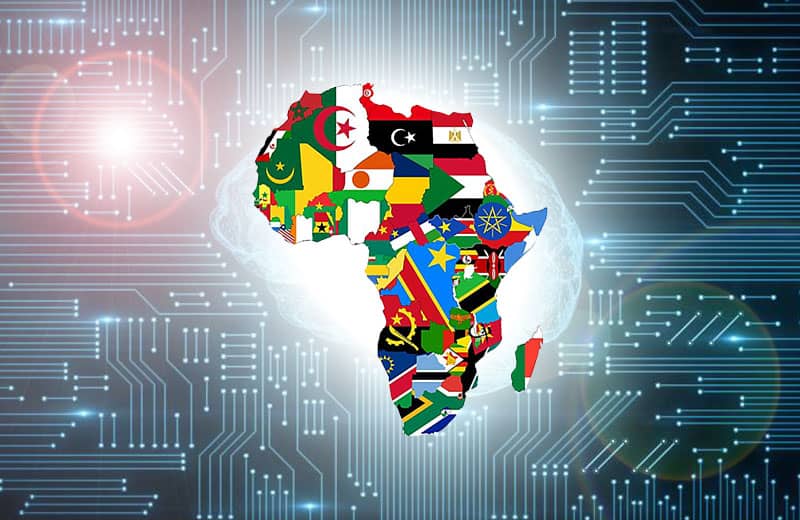The Tech Bro Economy: Why Africa's Startup Culture Is Getting Success Wrong

The Startup Dream That Sold Out.
A fresh photo goes up on LinkedIn: five smiling co-founders, all men, all wearing identical brand-logged hoodies, awkwardly standing over an embossed check marking the $5 million seed round. The celebration is not for product launch or pivot triumph, but for the mere potentiality of one.
Over the past decade, Africa’s startup ecosystem has been painted as the continent’s economic miracle; a non-stop surge of young founders, big valuations, and endless, breathless optimism. But beneath the headlines and hashtags, a quieter truth persists.

Africa’s dominant tech culture often mistakes funding for innovation, visibility for impact, and hustle for sustainability. This fixation on Silicon Valley's surface indicators has the potential to turn a real driver of continental growth into a shallow, exclusionary echo chamber.
The Tech Bro Economy is Born
The origins of Africa's startup boom are in the 2010s. Spurred by Silicon Valley's boom tales, there was an explosion of fintech, e-commerce, and logistics startups, primarily based in clusters like Lagos, Nairobi, and Cape Town.
The prevailing narrative was one of bypassing the existing infrastructure directly to web-based solutions. This culture produced the archetypal Tech Bro character: hyper-networked, driven, pitch-perfect, and buzzword-compliant with such phrases as disrupt, scale, seed, and impact. He wasn't just a founder; he was a performance artist, perpetually chasing capital and connectivity.
This culture initially promised equal ground, asking anyone to "build the next Flutterwave" or "be tomorrow's M-Pesa." But the illusion of equal opportunity was soon stripped bare. The system began secretly tilting towards those who enjoy the privilege of education from the best schools, influential family or corporate networks, or, most crucially, direct, personal access to foreign capital.
The required language proficiency in venture capital was a sieve, often rejecting shrewd, context-understanding creators who were not polished enough or well-connected alumni. The process became an echo chamber, rewarding whom you know and how well you can sell it versus the intrinsic merit of the product.
Hype vs. Hard Truths
The most glaring flaw in this hyper-dense culture is the obsession with the valuation illusion. Startups regularly raise tens of millions and are celebrated solely for their venture-capital success, often many years before they are profitable or even have genuine product-market fit. The funds are spent in order to take market share at any cost; a strategy known as the burn rate problem.

This is the process of chasing money at the expense of customers, building a business to attract the next funding round instead of serving actual users. Success is measured by money, replacing the more arduous path of operational success and creating revenues.
This has led to a mass duplication loop. Rather than developing innovative African solutions, the majority of startups are identical copies of functional Western versions, i.e., the Uber of X or the Robinhood of Y.
The approach usually goes wrong because it pays no heed to the continent's fundamental realities: poor logistics fragmentation, low trust in online payments, limited internet penetration, and special regulatory environments.
The result is a vicious cycle of mediocre firms. The streets are lined with startups that raised sparkling rounds only to then go through shutdowns, large-scale layoffs, or a subtle, humiliating fade-out once the initial rush of money dries up.
The trendy tale becomes stale, but the failure to build a sustainable business; one that can thrive on anything but a consistent flow of foreign money, remains the unreported story of the Tech Bro era.
The Culture of Performance
The African tech ecosystem has built a sophisticated veneer of success that usually masks underlying output. Founders orchestrate a frantic life of soft power: endless panel appearances, regular LinkedIn opinion columns, and stage-managed media calls.
The performance is usually an attempt at coping, an ongoing preening of demonstrating traction and health that is maybe out of touch with the hard reality of their balance sheets or adoption rates. The goal is to generate hype, which in turn generates increased investment, thereby perpetuating the performance.
In this case, social capital tends to override product value. Where the founder's credentials, his relationship to important government officials, or his entitlement to secure a positive profile piece in an international business magazine becomes the currency.
This focus on outside validation and networking tends to reinforce automatically the culture's inherent hierarchies. It is also a hugely masculine energy in innovation.
The Tech Bro culture marginalizes women and community-led innovation to secondary or "social enterprise," reserving the label of "serious tech" for high-burn, capital-hungry ventures. This rewards ego, hierarchy, and unsustainable, extractive growth at the expense of empathetic, cooperative problem-solving.
What's Missing: Purpose, Patience, People.
The current startup ecosystem is in a severe deficit of three critical areas.
First is purpose. There are too many startups made to chase problems of foreign funding popularity, the new hotness, the buzzword space rather than the pesky, hard problems that really impact the most people in the local community. This urge for "fundable" over "necessary" creates solutions in search of problems.
Second is patience. The venture capital model is based on rapid, exponential return, and hence a fast-money startup ethos. This is naturally at odds with the process of developing lasting businesses in complex, frontier contexts.
Slower growth often translates into longer footprint because it allows for fine-tuning operations, establishing trust with customers, and deep contextual understanding.
Third are people. An ongoing deficit of human-centered design plagues the sector. Products fail not because the technology is awful, but because they fundamentally misinterpret the quotidian African realities, whether prices of data, rates of illiteracy, structure of the informal economy, or lack of stable power.
Failure to fundamentally understand the local situation of the user is a failure of empathy, a result of founders designing for investors in San Francisco, not grandmothers in Kaduna.
The New Builders: Redefining Tech in Africa

There is a countermotion emerging, one that is driven by a new generation of builders who are committed to inclusion, community, and actual value creation.
These are entrepreneurs who abjure the 'bro code' and the imperative to always mimic the Silicon Valley model. They are proving that innovation isn't capital-led; it's context-led.
This shift is reflected in startups that are concentrating on deep local penetration: building apps in local languages, developing technologies to facilitate rural inclusion, or designing scalable solutions within renewable energy.
They measure success, not by their most recent funding round, but by user impact, duration, and the cultivation of an ethical approach. They understand that a 20% rate of growth per year creating a fifty-year-old, solid company is an infinitely greater success than any fleeting 500% boom that busts in five years.
They are demonstrating that the greatest startup isn't always the biggest paper-valued one but the one people can't live without.
Beyond the Bro Code.
The African tech ecosystem does not need more "tech bros." It needs context-builders, empathizers, and folks with the confidence to build slowly. The show economy of glittering seed rounds and motivational hoodies has run past its shelf life and become a miserable facsimile for actual economic heft.
The future of African innovation will not be about who can raise the most funds, but who can hang around the longest and can construct sustainable, homegrown solutions. The next digital game-changer in African tech may not be an app, maybe it is a shift in fundamental attitude.
Recommended Articles
DK Shivakumar Declares Bengaluru as India's Global Showcase

Karnataka Deputy CM DK Shivakumar highlights Bengaluru as India's global investment hub, attracting foreign capital in t...
Indian PE Market Chills: Investment Slowdown Looms Amid Global Uncertainty

Private equity investment in India slowed significantly in 2025, driven by global uncertainty and evolving trade policie...
You may also like...
If Gender Is a Social Construct, Who Built It And Why Are We Still Living Inside It?

If gender is a social construct, who built it—and why does it still shape our lives? This deep dive explores power, colo...
Be Honest: Are You Actually Funny or Just Loud? Find Your Humour Type

Are you actually funny or just loud? Discover your humour type—from sarcastic to accidental comedian—and learn how your ...
Ndidi's Besiktas Revelation: Why He Chose Turkey Over Man Utd Dreams

Super Eagles midfielder Wilfred Ndidi explained his decision to join Besiktas, citing the club's appealing project, stro...
Tom Hardy Returns! Venom Roars Back to the Big Screen in New Movie!

Two years after its last cinematic outing, Venom is set to return in an animated feature film from Sony Pictures Animati...
Marvel Shakes Up Spider-Verse with Nicolas Cage's Groundbreaking New Series!

Nicolas Cage is set to star as Ben Reilly in the upcoming live-action 'Spider-Noir' series on Prime Video, moving beyond...
Bad Bunny's 'DtMF' Dominates Hot 100 with Chart-Topping Power!

A recent 'Ask Billboard' mailbag delves into Hot 100 chart specifics, featuring Bad Bunny's "DtMF" and Ella Langley's "C...
Shakira Stuns Mexico City with Massive Free Concert Announcement!

Shakira is set to conclude her historic Mexican tour trek with a free concert at Mexico City's iconic Zócalo on March 1,...
Glen Powell Reveals His Unexpected Favorite Christopher Nolan Film

A24's dark comedy "How to Make a Killing" is hitting theaters, starring Glen Powell, Topher Grace, and Jessica Henwick. ...
